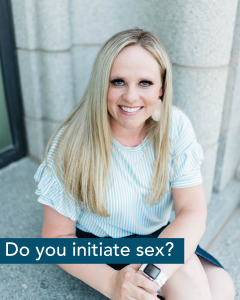
Do you have a hard time making decisions? Do you waffle back and forth? Do you not trust yourself to make good decisions? In this episode we will discuss HOW to make a decision, why you make the decisions you do, and how to be confident in your decisions.
Show Summary:
As adults, we make about 35,000 decisions each day! 35,000!!!!! That is a lot of decisions. A lot of them we are not even aware of. We make the decision to get out of bed each morning (some of us later than others and after multiple hits of the snooze button….which are also decisions!) We make decisions about what to wear, what to eat, what to drink, where to go, what road to take, there are SO MANY DECISIONS!!!!
But one of the jobs of our brain is to conserve energy. We have to conserve energy because there might be a tiger around the corner and we might need energy to run away, so our brain moves many of our decisions from the higher brain (the prefrontal cortex) to the lower brain. Things that we’ve done a thousand times and don’t really need to make decisions about get moved to the primitive brain so they are automatic. Things like brushing your teeth. You don’t say…now I need to decide what end of the toothbrush the toothpaste goes on. No…you just do it. But it’s still a decision.
So sometimes when we actually HAVE to make a decision our brain goes into freak-out mode because it doesn’t want to make a decision and expend that energy. So it goes into overwhelm thinking about the options and spins and spins with all the options, so that we don’t actually MAKE THE DECISION.
And then we go into fear…. fear that we are going to make the WRONG decision. Fear that our world will collapse, our kids will die, we will die if we make the wrong decision so it’s better to just not make any decision at all!
Does this sound familiar? Especially when it’s a BIG decision. One that we think is life altering.
Although there are plenty of people who don’t even want to make small decisions…. like what to eat! Most of the time the drama is around the big decisions.
While many times our options seem equally attractive (or else the decision would be an easy one) they are very differently attractive that require compromise and tradeoffs with each.
So normally when making a decision people go through a similar process. For this process let’s use the example that we are deciding on a vacation.
Step 1: You realize that a decision needs to be made.
- Are we going on vacation or not? Yes!
Step 2: We gather relevant information
- What is our budget?
- What dates work?
Step 3: Identify the alternatives
- We could go to Disneyland, or on a cruise, or camping at the Grand Canyon
Step 4: Weigh the evidence
- Disneyland costs this X amount, the weather in So Cal is nice. We could drive.
- Cruise costs X amount, it would be fun to see different places. We would need passports and flights.
- The Grand Canyon wouldn’t be as expensive but it’s more time in the car. We would need to bring all of our camping gear.
Step 5: Choose among the alternatives
- Decide which one sounds best (this is where most people get stuck!) We’ve decided a cruise!
Step 6: Take Action
- Book flights and cruise
- Get passports
Step 7: Review your decision and its consequences
- After the cruise evaluate – was that a good choice for your family? Would you do it again?
Now – Step 5, choosing among the alternatives is where people get stuck. Which one should I choose when they all seem to be good! This is where our brain likes to put us into overwhelm with so many options.
So I have some tips for you to how to go through this step.
- Pretend like you are advising a friend. What would you say to them?
So many times our emotions about the decision cloud our judgement. So what would you say to them? What questions would you ask?
- Limit the amount of information you take in
It’s pretty common to think that the more information you have, the better decision you can make. However, you cross a threshold where you have too much information and we can’t seem to see our way out. So try not taking in so much information until the decision is made. Then you can go all in!
- Set a time limit.
We love to say that I’m going to take some time to think about it. But really we are usually indulging in overwhelm, putting off making the decision, or gathering too much information and we are overwhelmed again.
But if you think about it, any decision we make, we actually make in a split second. So I suggest putting a time limit. I rarely ever take more than 24 hours to make even the biggest decisions. Just some time to mull it over, pray about it if I feel like I need to, and then actually make the decision.
I think a lot of us try to use prayer as a way to put off actually making the decision. We think that God needs to have a say in everything we do. I love this quote by Dieter F Uchtdorf in the March 2019 Ensign. He says
“When you ask God what to do about decisions in your life–including some important decisions–He may not give you a clear answer right away. The truth is that sometimes it just doesn’t matter what you decide, as long as you stay within the fundamental covenants and principles of the gospel.”
https://www.lds.org/study/ensign/2019/03/your-adventure-through-mortality?l=
Our Heavenly Father loves us and he trusts us. He trusts us to make decisions on our own. Sometimes there really isn’t a right or wrong. Sometimes we have to decide what we want for ourselves and live with the consequences. He will let us know if we aren’t on the right path.
Now let’s think about this is terms of our CTFAR model. Decisions go in the A line. Making the decision is an action. So I just want you to notice when you are making a decision what feeling is driving that decision.
If your decision comes from a feeling of confidence, or motivated, or peace, it’s probably the right decision. But if your decision is coming from a place of anger, hurt, or fear it’s probably not coming from the best place.
I hear a lot from my clients that they don’t know if they should get divorced or not. They don’t know if it’s the right decision. Most of the time, I think they do actually know what the right decision is, but they are letting fear keep them stuck.
Some of them know deep down that divorce is the right decision. But they let fear of what might happen in the future keep them from moving forward.
- Fear that their spouse will retaliate
- Fear that they will lose their kids
- Fear that they won’t be able to support themselves or their kids
That fear keeps them from actually making the decision that they know is right.
OR
They know they shouldn’t get divorced. Divorce is an escape from having to deal with hard things. They don’t want to face what they are actually avoiding and that is feeling emotions that don’t feel good.
The ONLY reason we ever do anything is either because we think it will make us feel a certain way or to avoid feeing a certain way. That’s it. We seek pleasure and avoid pain.
But if you can just notice what feeling is driving that action and decide if that is what you truly want, then you’ll know if you are making the right decision or not. And if you do make a decision, and it doesn’t turn out the way you had hoped, at least you know that decision wasn’t made from fear but from a place that you wanted it to come from.
I love the story from Elder Jeffrey R. Holland where he and his son were driving through southern Utah. As the sun went down they decided to head back home and hit a fork in the road and didn’t know which way to go. So they prayed and both felt they were supposed to go right. After a few hundred yards they came to a dead end. They wondered why God had led them to make that decision when it was a dead end. But Elder Holland explained that he thought God did that so they knew for sure they were on the right path.
He said ““Sometimes the Lord lets us go down the wrong road for a little while so that we can know with certainty the right road to take.”
Sometimes we too make decisions that we feel confident about but they turn out NOT to be what we expected. Sometimes we make those decisions with God’s blessing and with his help. But when it doesn’t turn out like we thought, we question them. We question our own ability to make decisions.
For so long I questioned my decision to marry my first husband. I knew it was my choice. I had made that decision. But I felt like Heavenly Father was good with my decision. But how could that be the right decision and then it went so wrong? Was it the right decision? Or should I have done something differently.
Personally, I think it was the right decision. I was led down that path in my life because of the lessons I needed to learn, to have my children born, and then to appreciate more fully the life that I have now.
Sometimes when we make decisions and they don’t turn out the way we want, we begin to question ourselves. We begin not to trust our abilities to make decisions.
But what I’d like to offer to you is that every decision (unless you make a decision and then feel prompted otherwise) is the right decision, because that is the decision you made.
Sometimes you make the right decision, and sometimes you make the decision right. Phil McGraw
It doesn’t matter if that is the decision to marry, divorce, have more children, take a new job, move, or many many other options we have available to us today.
Just make your decision and trust yourself to know that as long as it was driven by the right feeling and you weren’t prompted later to change that decision, it was the right one. No matter the outcome. And once you have made your decision, stand by it. It doesn’t matter what anyone else thinks of your decision if you know that it was the right one for you.
“When you make the right decision, it doesn’t really matter what anyone else thinks.” Caroline Kennedy



